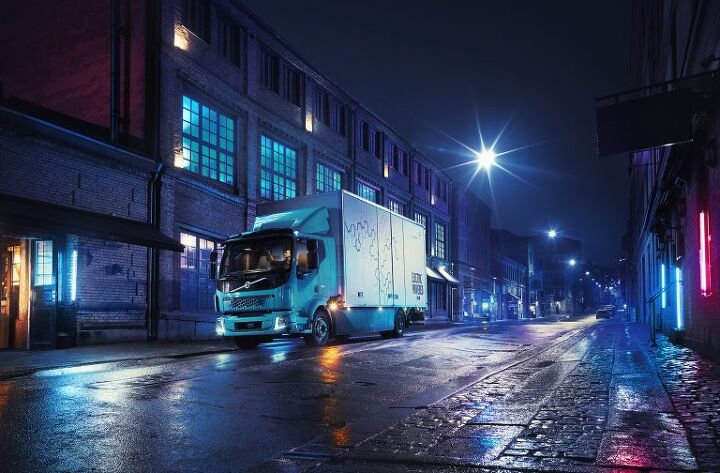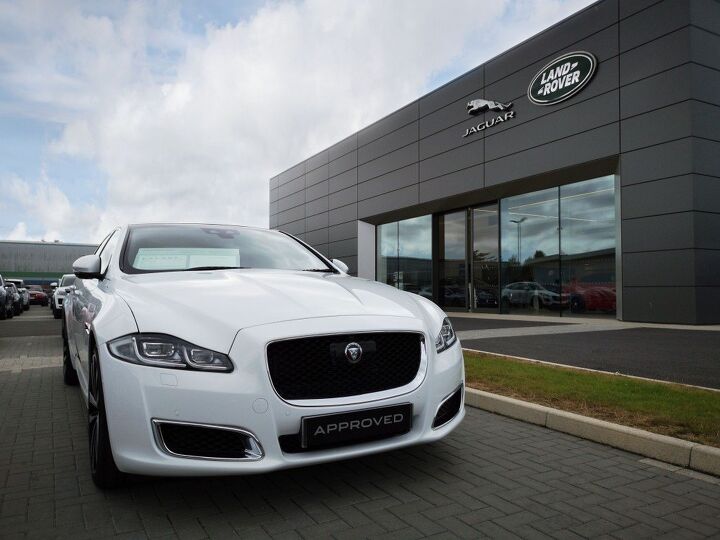#EuropeanUnion
What’s the Deal With Synthetic Fuels?
Following news that the European Union had delayed voting on the prospective banning of the internal combustion engine, Porsche and Ferrari have reportedly been doing their utmost to encourage exemptions for synthetic fuels. Presented as an alternative to gasoline and diesel, “e-fuels” would theoretically allow the automakers to continue selling traditional engines while offering fuels they claim would be less harmful to the environment.
However, cutting through the industry rhetoric on this will be important. Despite assurances that synthetic fuels would reduce greenhouse gas emissions, there are a lot of lingering questions about e-fuels.
EU Postpones Vote on Combustion-Engine Ban, Germany Asks for Favors
The European Union is reportedly finding itself in a difficult position ahead of prospective bans on vehicles utilizing internal combustion engines. Germany has threatened to block the agreement, pulling what can only be described as the classic switcheroo in exchange for favorable conditions.
German manufacturers are attempting to market synthetic fuels as a viable and environmentally sound alternative to standard gasoline or diesel. Regulators influenced by the automotive sector are now pressing for the EU to make special exceptions for so-called “electrofuels” before the combustion ban can be finalized – with Italy likewise suggesting it would reject the emission rules everyone agreed to last year.
EU Bans the Sales of New ICE Vehicles Starting in 2035
The European Union has taken earlier and more drastic steps to stem the tide of climate change than many other parts of the world. Fuel economy and emissions standards are stricter there, and yesterday, the EU announced the passage of its most restrictive gas vehicle policies yet. The updated law bans selling new internal combustion vehicles starting in 2035.
Gas War: Europe Reaches Agreement On 2035 Combustion Ban
The Czech Republic, which currently holds the European Union presidency, has announced that negotiators from member states, the European Parliament, and the European Commission have finally come together to agree upon the often-mentioned combustion ban. By 2035, every automaker operating within the continent will be required to cut emissions by 100 percent – effectively mandating what type of vehicles can be sold there.
Europe Now Requires Speed Regulators for All New Vehicles
On July 6th, the European Union formally introduced laws that require auto manufacturers to install speed-limiting hardware on new vehicles. While speed governors have been around for years (and are becoming increasingly popular among certain manufacturers) the EU’s new rules actually require technology that takes things a step further by allowing cars to actively detect and then regulate the speed for any given road.
Europe Developing 'Battery Passport' for EVs
A group of German automakers, chemical concerns, and battery producers have announced the joint development of a “battery passport” designed to help government regulators trace the history of the cells. The consortium is funded by the German government and is supposed to work in tandem with new battery regulations that are being prepared by the European Union.
According to the German economic ministry, officially the Federal Ministry for Economic Affairs and Climate Action, the overarching plan is for the EU to mandate traceable hardware be installed in all batteries used in the continent by 2026. Those intended for use in electric vehicles are up first, with the passport scheme also serving to chronicle everything from the vehicle’s repair history to where the power cell’s raw materials were sourced.
Europe Proposes Banning Internal Combustion Cars By 2035
Last week, the European Union proposed banning the sale of all new internal combustion vehicles starting in 2035. With several member nations proposing restrictions in the coming years, EU leadership feels it can accelerate the timeline to force electric vehicles as the de facto mode of transportation. The European Commission has suggested making it illegal to sell gas or diesel-powered vehicles in 14 years, with aims to reduce CO2 emissions produced by automobiles by 55 percent (vs 2021 levels) by 2030.
But countries that still produce vehicles have expressed reservations about the scheduling. France absolutely agrees with mandating restrictions that would reduce greenhouse emissions. Though President Emmanuel Macron’s office has been pressing that hybrid vehicles would be able to do much of the heavy lifting and fears that an outright ban of internal combustion could hamstring the industry if conducted too early. Germany, which manufacturers more vehicles than other EU member nations, is of a similar mind.
Are Speed Limiters Coming to American Cars?
Carscoops is reminding us that a law passed in 2019 is mandating that new cars introduced after 2022 must be fitted with speed limiters.
Here’s the good news, at least for us Yanks and Canucks — the law was passed by the European Union and applies to, well, Europe.
European Automakers Think Fuel Taxes Will Increase EV Sales
Undoubtedly eager to improve the take rate of electric vehicles, automakers have a myriad of solutions at their disposal. But the majority have something to do with getting the government involved to futz around with taxes.
Normally, this has to do with making special exceptions for EVs or subsidizing them via rebate programs. But governments seem happy to do this, as increasingly more legislation is advanced that would place restrictions on when and where people will be able to drive internal combustion vehicles, and automakers appear to be getting with the program. We’ve already seen manufacturers choosing sides in America’s gas war and now the Europeans are getting in on the action by demanding higher taxes be imposed on vehicles reliant on gasoline or diesel.
European Auto Lobby Demands More EV Charging Stations for Hundredth Time
The European Automobile Manufacturers’ Association (ACEA) is demanding the EU install more electric vehicle charging stations in a letter co-signed with Transport & Environment (T&E) and the European Consumer Organization (BEUC). This marks the hundredth time (rough estimate) an auto lobbying entity has tried to pressure the government into spending a fortune to drastically alter the European infrastructure to support the planned glut of EVs.
But it might be a fair request. Regulatory actions have effectively forced the industry into a corner and it now seems giddy at the prospect of an electrified world. The only real downside is that the charging infrastructure and power grids aren’t ready. ACEA estimates that the EU will need to build one million public charging points by 2024, with hopes of seeing three million installed before 2030.
Let’s see how feasible that is before it’s tried in our neck of the woods.
European Truck Manufacturers Ending ICE Production in 2040
An alliance of European truck manufacturers have pledged to stop selling vehicles that produce any emissions by 2040 — pushing up its previous target date by a full decade.
The group, which includes Daimler, Scania, Man, Volvo, Daf, Iveco, and Ford, have all signed a pledge to focus on developing hydrogen and battery technologies so that petroleum-derived propulsion can be phased out of the trucking industry.
European Car Sales Plummet as Continent Revisits Lockdown Protocols
If you hadn’t already heard, Europe began taking actions to prepare itself for another pandemic-related lockdown. Last month, leadership in Germany and France noted that existing restrictions were “not enough anymore” and began issuing specific citizens “certificates” allowing them to move freely within the country. As you might have imagined, this didn’t exactly bolster automotive sales.
While most of the new restrictions were implemented at the tail end of October, they’ve foreshadowed additional measures introduced as more countries climbed aboard ( like the UK’s second banning of sex with people from outside of the household) and began signaling that automotive sales were about to be routed. Gains made in September look to be completely undone, with Germany’s Federal Motor Transport Authority stating new-car registrations fell by 3.6 percent in October (vs 2019) on Wednesday. But that’s only the beginning of the bad news.
Honda Pooling With Tesla for EU Emissions Compliance
Honda Motor Co. will be accompanying Fiat Chrysler Automobiles in pooling its emissions with electric vehicle manufacturer Tesla in an attempt to adhere to CO2 limits mandated by the European Union. For 2020, the average emissions of all vehicles sold within the region must not exceed 95 grams of CO2 per kilometer. Companies failing to comply will be forced to pay the government sizable fines as it readies even higher targets for next year.
Over half of automakers planning to move product inside Europe next year are already assumed to fail however, resulting in a series of rushed hybrid/EV products, the obliteration of the diesel-powered passenger vehicles, and companies desperate to team up with the manufacturers that came in under the regulatory limits.
Jaguar Land Rover Prepares to Pay $118 Million in Emissions Fines
Jaguar Land Rover is putting 90 million pounds ($118 million) into its rainy day fund in case it’s fined by the European Union for failing to meet CO2 emission-reduction targets. Delays in launching plug-in hybrid models, stalled by WLTP efficiency estimates that didn’t quite reach a best-case scenario, have left the automaker above the allotted EU fleet average of 95 grams per kilometer.
“We are not happy that we will not be compliant in 2020, but a lot of that has been taken out of our hands,” JLR CFO Adrian Mardell said during Tuesday’s quarterly earnings call with investors.
European Regulators Finally Approve PSA/FCA Becoming Stellantis
Fiat Chrysler and PSA Group are reportedly in the homestretch of their $38 billion merger deal and on the cusp of becoming Stellantis — the planet’s fourth largest automaker by volume. The plan is to join forces to help absorb the monumental cost of developing alternative energy vehicles (like EVs) without losing any brands or shuttering any facilities that weren’t previously marked for death. We’re inclined to believe it when we see it, however, as the duo are also targeting an annual cost reduction of 5 billion euros (about $5.91 billion USD).
It also hasn’t been a smoothest of regulatory rides. After spending years hunting for the perfect partner, FCA and PSA had to adjust the terms of their existing deal to contend with losses incurred as a result of the pandemic response. But it all seems to be fine now and the European Commission has given approval and that’s what matters in finally getting this deal done.





























Recent Comments